The John R. Lewis Professorship in Pathology
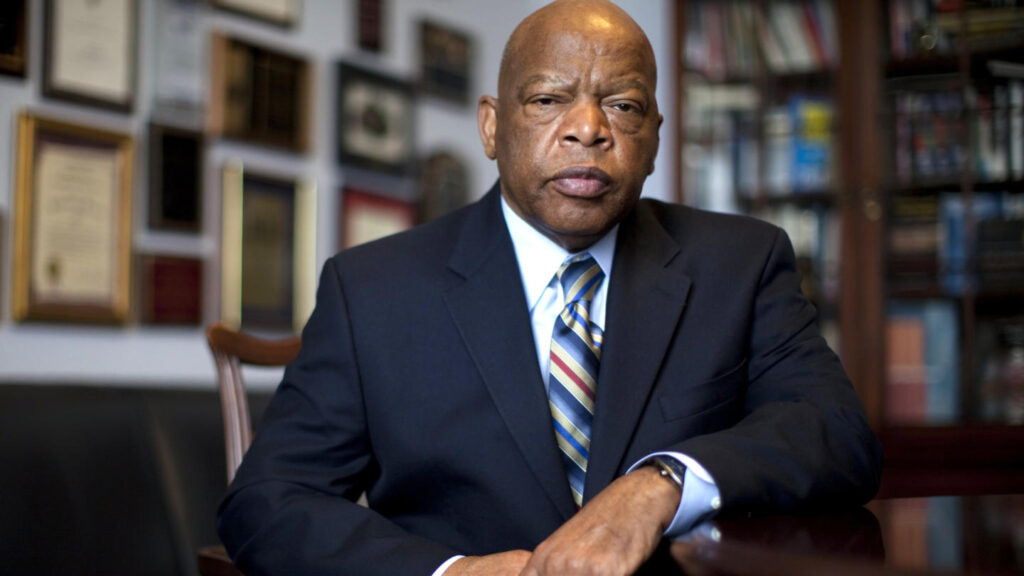 Congressman JOHN R. LEWIS (1940-2020) was a key figure in some of the most pivotal moments of the civil rights movement. He was the face of the Nashville, Tennessee Student Movement; chairman of the Student Nonviolent Coordinating Committee; an original Freedom Rider; and one of the keynote speakers at the historic 1963 March on Washington, D.C. Mr. Lewis served as executive director of the Voter Education Project; as associate director of ACTION—the federal agency that oversaw the Peace Corps and VISTA; and as a member of the Atlanta, Georgia, City Council. He authored several best-selling books, including the March comic book trilogy and his inspiring autobiography, Walking with the Wind. Congressman Lewis was a staunch and unwavering believer and advocate of nonviolent protest. The recipient of more than 50 honorary degrees, he was called a “saint” by Time magazine and the “conscience of the Congress” by his colleagues in the United States Congress, where he spent more than 30 years steadfastly defending and building upon key civil rights gains of the 1960s. Even in the face of hatred and violence, and more than 45 arrests, Congressman Lewis remained resolute in his commitment to what he called “good trouble.” The defining moment of Congressman Lewis’s life occurred on Sunday, March 7, 1965. He and more than 600 demonstrators intended to march from Selma, Alabama, to the state capitol in Montgomery, 50 miles away, in support of equal voting rights. Ordered to disperse by Alabama state troopers, the demonstrators knelt in prayer instead. Through clouds of tear gas, the troopers advanced, trampling the marchers under horses and hitting them with nightsticks. Congressman Lewis, having been struck on the head and beaten repeatedly, crumpled to the ground with a fractured skull. That day became known as “Bloody Sunday.” The brutal response to what was a peaceful, non-violent demonstration helped to galvanize public opposition to racial segregation when the horrific scenes were televised nationwide. The landmark Voting Rights Act, which strengthened the federal government’s ability to prevent state and local governments from denying citizens the right to vote because of race, was signed into law on August 6, 1965. Congressman Lewis, who was born near Troy, Alabama, in 1940 and spent the majority of his life in Atlanta, was elected to represent Georgia in the United States House of Representatives in 1986. During his more than three decades in Congress, he garnered the support needed to pass the Civil Rights Act of 1991, sponsored the legislation that created the 54-mile-long Selma to Montgomery National Historic Trail, and worked for more than a decade to establish the National Museum of African American History and Culture on the National Mall in Washington, D.C. In 2010, Congressman Lewis was awarded the Presidential Medal of Freedom—the nation’s highest civilian honor—by President Barack Obama. Congressman Lewis was a member of the House Committee on Ways and Means Subcommittee on Health, where he authored the essential community providers bill to address the issue of health disparities by ensuring affordable, accessible, and quality health care for all. In 2000, Congressman Lewis was the primary sponsor of legislation to elevate what was then the National Institutes of Health Office of Research on Minority Health to become the National Center on Minority Health and Health Disparities—a name the Congressman chose to reflect the importance he saw in building the nation’s research capacity and infrastructure to address pervasive health disparities among communities of color. The legislation created an endowment fund to facilitate minority health and health disparities research, increase the diversity and strength of the scientific workforce, and enhance the recruitment and retention of individuals from communities under-represented in science. The Center has since been elevated to an institute. In 2022, Congress passed the John Lewis National Institute on Minority Health and Health Disparities Research Endowment Revitalization Act, to increase investments in universities conducting critical research into minority health disparities. In 2019, Congressman Lewis was diagnosed with pancreatic cancer and passed away on July 17, 2020, at the age of 80. Befitting his significant impact on 20th-century United States history, Congressman Lewis was the first black lawmaker to lie in state in the U.S. Capitol Rotunda. Just a few months earlier, he had once again crossed the Edmund Pettus Bridge, as he had done every year for decades. “Speak up,” he exhorted the young people gathered around him on the bridge that day. “Speak out. Get in the way. Get in good trouble, necessary trouble.” Always wanting to teach and inspire young people, Congressman Lewis left a message to be published following his death. “Though I may not be here with you,” he wrote, “I urge you to answer the highest calling of your heart and stand up for what you truly believe in. In my life, I have done all I can to demonstrate that the way of peace, the way of love, and nonviolence is the more excellent way. Now it is your turn to let freedom ring.” Following his death, in 2021 a statue of Congressman Lewis was erected in Cook Park in Atlanta, and in 2022 the city’s main Post Office was renamed in his honor. Troy University (formerly Troy State College) in Alabama, which had refused to acknowledge Lewis’s inquiry about admission in 1957, renamed one of its central buildings after him. Schools in Georgia, Virginia, and Washington, D.C., have been renamed in his honor, and universities in California, Georgia, and Louisiana have created programs and schools bearing his name and offering curricula that educate current and future leaders about civic engagement and social justice.
Congressman JOHN R. LEWIS (1940-2020) was a key figure in some of the most pivotal moments of the civil rights movement. He was the face of the Nashville, Tennessee Student Movement; chairman of the Student Nonviolent Coordinating Committee; an original Freedom Rider; and one of the keynote speakers at the historic 1963 March on Washington, D.C. Mr. Lewis served as executive director of the Voter Education Project; as associate director of ACTION—the federal agency that oversaw the Peace Corps and VISTA; and as a member of the Atlanta, Georgia, City Council. He authored several best-selling books, including the March comic book trilogy and his inspiring autobiography, Walking with the Wind. Congressman Lewis was a staunch and unwavering believer and advocate of nonviolent protest. The recipient of more than 50 honorary degrees, he was called a “saint” by Time magazine and the “conscience of the Congress” by his colleagues in the United States Congress, where he spent more than 30 years steadfastly defending and building upon key civil rights gains of the 1960s. Even in the face of hatred and violence, and more than 45 arrests, Congressman Lewis remained resolute in his commitment to what he called “good trouble.” The defining moment of Congressman Lewis’s life occurred on Sunday, March 7, 1965. He and more than 600 demonstrators intended to march from Selma, Alabama, to the state capitol in Montgomery, 50 miles away, in support of equal voting rights. Ordered to disperse by Alabama state troopers, the demonstrators knelt in prayer instead. Through clouds of tear gas, the troopers advanced, trampling the marchers under horses and hitting them with nightsticks. Congressman Lewis, having been struck on the head and beaten repeatedly, crumpled to the ground with a fractured skull. That day became known as “Bloody Sunday.” The brutal response to what was a peaceful, non-violent demonstration helped to galvanize public opposition to racial segregation when the horrific scenes were televised nationwide. The landmark Voting Rights Act, which strengthened the federal government’s ability to prevent state and local governments from denying citizens the right to vote because of race, was signed into law on August 6, 1965. Congressman Lewis, who was born near Troy, Alabama, in 1940 and spent the majority of his life in Atlanta, was elected to represent Georgia in the United States House of Representatives in 1986. During his more than three decades in Congress, he garnered the support needed to pass the Civil Rights Act of 1991, sponsored the legislation that created the 54-mile-long Selma to Montgomery National Historic Trail, and worked for more than a decade to establish the National Museum of African American History and Culture on the National Mall in Washington, D.C. In 2010, Congressman Lewis was awarded the Presidential Medal of Freedom—the nation’s highest civilian honor—by President Barack Obama. Congressman Lewis was a member of the House Committee on Ways and Means Subcommittee on Health, where he authored the essential community providers bill to address the issue of health disparities by ensuring affordable, accessible, and quality health care for all. In 2000, Congressman Lewis was the primary sponsor of legislation to elevate what was then the National Institutes of Health Office of Research on Minority Health to become the National Center on Minority Health and Health Disparities—a name the Congressman chose to reflect the importance he saw in building the nation’s research capacity and infrastructure to address pervasive health disparities among communities of color. The legislation created an endowment fund to facilitate minority health and health disparities research, increase the diversity and strength of the scientific workforce, and enhance the recruitment and retention of individuals from communities under-represented in science. The Center has since been elevated to an institute. In 2022, Congress passed the John Lewis National Institute on Minority Health and Health Disparities Research Endowment Revitalization Act, to increase investments in universities conducting critical research into minority health disparities. In 2019, Congressman Lewis was diagnosed with pancreatic cancer and passed away on July 17, 2020, at the age of 80. Befitting his significant impact on 20th-century United States history, Congressman Lewis was the first black lawmaker to lie in state in the U.S. Capitol Rotunda. Just a few months earlier, he had once again crossed the Edmund Pettus Bridge, as he had done every year for decades. “Speak up,” he exhorted the young people gathered around him on the bridge that day. “Speak out. Get in the way. Get in good trouble, necessary trouble.” Always wanting to teach and inspire young people, Congressman Lewis left a message to be published following his death. “Though I may not be here with you,” he wrote, “I urge you to answer the highest calling of your heart and stand up for what you truly believe in. In my life, I have done all I can to demonstrate that the way of peace, the way of love, and nonviolence is the more excellent way. Now it is your turn to let freedom ring.” Following his death, in 2021 a statue of Congressman Lewis was erected in Cook Park in Atlanta, and in 2022 the city’s main Post Office was renamed in his honor. Troy University (formerly Troy State College) in Alabama, which had refused to acknowledge Lewis’s inquiry about admission in 1957, renamed one of its central buildings after him. Schools in Georgia, Virginia, and Washington, D.C., have been renamed in his honor, and universities in California, Georgia, and Louisiana have created programs and schools bearing his name and offering curricula that educate current and future leaders about civic engagement and social justice.
Leadership and Innovation Endowed Chair
The chair was funded to support the School of Nursing’s Diversity Signature Initiative to recognize exemplary nurse scholars from racial, ethnic and gender minority groups, bolster a diverse workforce, and improve health outcomes among underrepresented communities and populations.
George E. Bigelow, PhD Professorship
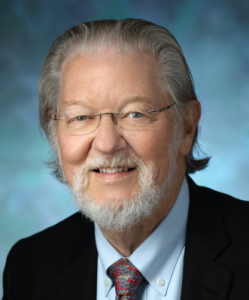 DR. GEORGE E. BIGELOW is a professor of Psychiatry and Behavioral Sciences at The Johns Hopkins University School of Medicine, and for more than four decades served as the leader and the director of the Behavioral Pharmacology Research Unit (BPRU) in the Department of Psychiatry and Behavioral Sciences. He is also the director of the Postdoctoral Research Training Program on Human Behavioral Pharmacology of Substance Abuse funded by the National Institute on Drug Abuse, and was the director of the Drug Abuse Treatment Research Center of the BPRU.
DR. GEORGE E. BIGELOW is a professor of Psychiatry and Behavioral Sciences at The Johns Hopkins University School of Medicine, and for more than four decades served as the leader and the director of the Behavioral Pharmacology Research Unit (BPRU) in the Department of Psychiatry and Behavioral Sciences. He is also the director of the Postdoctoral Research Training Program on Human Behavioral Pharmacology of Substance Abuse funded by the National Institute on Drug Abuse, and was the director of the Drug Abuse Treatment Research Center of the BPRU.
Dr. Bigelow graduated with honors from the University of Maryland with a bachelor of science in psychology in 1965. He achieved his PhD in experimental psychology in 1969 at the University of Minnesota, where he continued on for an additional two years as a postdoctoral research fellow in the psychopharmacology training program. He was recruited to the Division of Behavioral Biology at Johns Hopkins by Professor Joseph V. Brady in 1971.
The Paul and Christine Englund Professorship
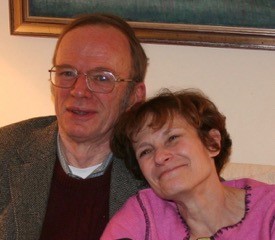 PAUL ENGLUND received his PhD from Rockefeller University in 1966. Following post-doctoral training at Stanford University in the Department of Biochemistry, he joined the faculty in the Department of Biological Chemistry at Johns Hopkins University in 1968. In 2010 he retired and is now a Professor Emeritus. At Stanford, he worked on DNA enzymology, studies that he continued for a few years at Hopkins. Searching for a new project in the early 1970’s, he began to work on protozoan parasites that cause tropical diseases. His work eventually centered on Trypanosoma brucei that cause human and cattle diseases in sub-Saharan Africa. He studied mainly the mitochondrial DNA called kinetoplast DNA (kDNA) that is isolated in the form of giant networks of interlocking DNA rings (minicircles and maxicircles). There was nothing known about their replication when he started, and over the years he worked out many features of the kDNA replication pathway. Around 1980, he began a collaboration with Jerry Hart to study the biosynthesis of GPI anchors, which are more abundant in trypanosomes than any other cell type, thus making this organism an ideal model system in which to study this process. They discovered the GPI precursor and worked out the pathway for the biosynthesis of this precursor. They also discovered the remodeling pathway by which the original longer fatty acids are replaced by myristate. The Englund lab subsequently discovered the unique mechanism by which trypanosomes synthesize fatty acids. All of this research was done by graduate students and post-doctoral fellows in the Englund lab. In addition, Paul was Co-Director of the Biology of Parasitism course at the Marine Biological Laboratory in Woods Hole, Massachusetts from 1984–1988. In 2010, he was elected to the National Academy of Sciences.
PAUL ENGLUND received his PhD from Rockefeller University in 1966. Following post-doctoral training at Stanford University in the Department of Biochemistry, he joined the faculty in the Department of Biological Chemistry at Johns Hopkins University in 1968. In 2010 he retired and is now a Professor Emeritus. At Stanford, he worked on DNA enzymology, studies that he continued for a few years at Hopkins. Searching for a new project in the early 1970’s, he began to work on protozoan parasites that cause tropical diseases. His work eventually centered on Trypanosoma brucei that cause human and cattle diseases in sub-Saharan Africa. He studied mainly the mitochondrial DNA called kinetoplast DNA (kDNA) that is isolated in the form of giant networks of interlocking DNA rings (minicircles and maxicircles). There was nothing known about their replication when he started, and over the years he worked out many features of the kDNA replication pathway. Around 1980, he began a collaboration with Jerry Hart to study the biosynthesis of GPI anchors, which are more abundant in trypanosomes than any other cell type, thus making this organism an ideal model system in which to study this process. They discovered the GPI precursor and worked out the pathway for the biosynthesis of this precursor. They also discovered the remodeling pathway by which the original longer fatty acids are replaced by myristate. The Englund lab subsequently discovered the unique mechanism by which trypanosomes synthesize fatty acids. All of this research was done by graduate students and post-doctoral fellows in the Englund lab. In addition, Paul was Co-Director of the Biology of Parasitism course at the Marine Biological Laboratory in Woods Hole, Massachusetts from 1984–1988. In 2010, he was elected to the National Academy of Sciences.
CHRISTINE SCHNEYER ENGLUND, MD, devoted her medical career to patient care, teaching, and clinical research. Previously she was the Associate Director of Endocrinology at Sinai Hospital of Baltimore and Director of the Osteoporosis Center at Mercy Hospital. In 2007, she earned a Master’s degree in Clinical Investigation at the Johns Hopkins School of Public Health. She has been an adjunct faculty member in the Division of Endocrinology at Johns Hopkins since 1990, and continues to teach Hopkins medical residents during their specialty rotations in Endocrinology. In the near future, she plans to begin volunteer work as an Endocrine Consultant at the Shepherd Clinic in Baltimore. Medicine was a second career for Christy. She attended the University of Maryland School of Medicine after obtaining a Master’s degree in Piano.
Protected: The Huntington Sheldon, M.D., Professorship in Medical Discovery
Henry A. Kissinger Distinguished Professorship
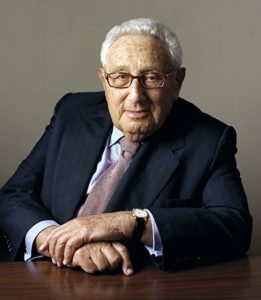 HENRY A. KISSINGER served as national security adviser and secretary of state in the Nixon and Ford administrations. He negotiated nuclear weapons and anti-ballistic missile treaties with the Soviet Union and laid the groundwork for President Nixon’s breakthrough visit to China in 1972. He also negotiated for the United States at the Paris peace talks that led to the end of the Vietnam War.
HENRY A. KISSINGER served as national security adviser and secretary of state in the Nixon and Ford administrations. He negotiated nuclear weapons and anti-ballistic missile treaties with the Soviet Union and laid the groundwork for President Nixon’s breakthrough visit to China in 1972. He also negotiated for the United States at the Paris peace talks that led to the end of the Vietnam War.
A former Harvard University professor of government, Kissinger has remained an influential observer of international affairs. He is the author of 18 books and is founder and chairman of Kissinger Associates, an international consulting firm. Kissinger has been awarded the Nobel Peace Prize, the Presidential Medal of Freedom, and the Medal of Liberty.
Mohamad E. Allaf Directorship in Minimally Invasive Urology
The Mohamad E. Allaf Directorship in Minimally Invasive Urology was endowed in 2014 by an anonymous donor in gratitude for the care they received at the James Buchanan Brady Urological Institute. The directorship provides faculty and staff support at the Brady for medical professionals who are closely involved with the practice and refinement of minimally invasive urologic surgery and research.
John W. Griffin Directorship
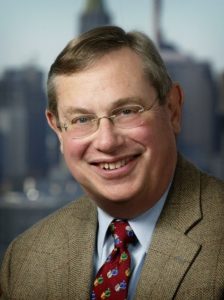 A native of Nebraska, Dr. JOHN W. “JACK” GRIFFIN was a 1963 Phi Beta Kappa graduate of Grinnell College in Iowa. He obtained his medical degree in 1968 from Stanford, where he spent two years as an intern and resident. Beginning as a neurology resident at Hopkins in 1970, Griffin spent his entire four-decade career in the School of Medicine.
A native of Nebraska, Dr. JOHN W. “JACK” GRIFFIN was a 1963 Phi Beta Kappa graduate of Grinnell College in Iowa. He obtained his medical degree in 1968 from Stanford, where he spent two years as an intern and resident. Beginning as a neurology resident at Hopkins in 1970, Griffin spent his entire four-decade career in the School of Medicine.
Dr. Griffin was one of the world’s top experts, both as a clinician and researcher, on peripheral nerve disorders. He became a leading figure in studies of Guillain-Barré syndrome, a disease in which the immune system attacks nerves, leading to rapidly evolving paralysis of the legs, arms, face, and muscles used in breathing. He went on to play a central role in studying the mechanisms of nerve degeneration and regeneration, and his work led to numerous treatments for neuromuscular disorders.
Griffin was named head of the Department of Neurology and neurologist-in-chief of The Johns Hopkins Hospital in 1999. As head of neurology, he oversaw the expansion of what already was the country’s largest neurology critical care unit to a 22-bed facility for the treatment of patients.
He remained head of neurology until 2006, when ill health compelled him to step down. He recovered, however, and became the founding director of the Brain Science Institute in 2007. That same year, he received the Johns Hopkins Heritage Award for outstanding service to the university.
A prolific researcher, Dr. Griffin focused on understanding the mechanisms of degeneration and regeneration in peripheral nerves. He published more than 300 studies in scientific journals, edited major textbooks on peripheral neuropathies, and was editor of the neurological journal Nature Neurology.
HRH Prince Sultan Bin Abdul Aziz Chair in Environmental Policy
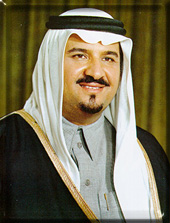 HRH PRINCE SULTAN BIN ABDUL AZIZ served as deputy prime minister of the Kingdom of Saudi Arabia. During his long career in government, he also served as the first minister of agriculture in Saudi Arabia, minister of communications, minister of defense and aviation, and as chairman of Saudi Arabian Airlines. Crown Prince Sultan was also chairman of the National Commission for Wildlife Conservation and Development (NCWCD), an organization which he founded in 1986 to promote the protection of the nation’s indigenous wildlife. He died in 2011.
HRH PRINCE SULTAN BIN ABDUL AZIZ served as deputy prime minister of the Kingdom of Saudi Arabia. During his long career in government, he also served as the first minister of agriculture in Saudi Arabia, minister of communications, minister of defense and aviation, and as chairman of Saudi Arabian Airlines. Crown Prince Sultan was also chairman of the National Commission for Wildlife Conservation and Development (NCWCD), an organization which he founded in 1986 to promote the protection of the nation’s indigenous wildlife. He died in 2011.
George H.W. Bush Professorship of International Relations
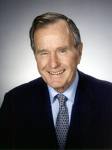 GEORGE H.W. BUSH, the forty-first president of the United States, is a statesman, diplomat, and lifelong public servant. A naval pilot who received the Distinguished Flying Cross for his service in the Pacific during World War II, President Bush began his political career as a representative to Congress from Texas. He also held positions as Ambassador to the United Nations, chairman of the Republican National Committee, and director of the Central Intelligence Agency. He served as vice president under Ronald Reagan, and in 1988 was elected to office as the President of the United States. His presidency was marked by a number of international developments, including the end of the Cold War, the overthrow of General Manuel Noriega in Panama, and Operation Desert Storm in Kuwait.
GEORGE H.W. BUSH, the forty-first president of the United States, is a statesman, diplomat, and lifelong public servant. A naval pilot who received the Distinguished Flying Cross for his service in the Pacific during World War II, President Bush began his political career as a representative to Congress from Texas. He also held positions as Ambassador to the United Nations, chairman of the Republican National Committee, and director of the Central Intelligence Agency. He served as vice president under Ronald Reagan, and in 1988 was elected to office as the President of the United States. His presidency was marked by a number of international developments, including the end of the Cold War, the overthrow of General Manuel Noriega in Panama, and Operation Desert Storm in Kuwait.
CHAIRHOLDER TO BE NAMED.
The Solomon H. Snyder Professorship in Neurosurgery
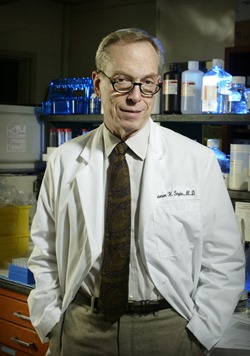 SOLOMON H. SNYDER, MD came to Johns Hopkins Hospital to complete his psychiatric training in 1965. In 1966 he joined the faculty of the Johns Hopkins University School of Medicine (Asst Professor Pharmacology, 1966-1968; Associate Professor Pharmacology/Psychiatry (1968-1970); Professor (1970). In 1980 he established the Department of Neuroscience and served as Director (1980-2006). He is presently Distinguished Service Professor of Neuroscience, Pharmacology and Psychiatry. Dr. Snyder is the recipient of numerous professional honors, including the Albert Lasker Award for Basic Biomedical Research (1978), the National Medal of Science (2005), the Albany Medical Prize (2007), Honorary Doctor of Science degrees from Northwestern University (1981), Georgetown University (1986), Ben Gurion University (1990), Albany Medical College (1998), Technion University of Israel (2002), Mount Sinai Medical School (2004), University of Maryland (2006), Charles University, Prague (2009), the Wolf Foundation Prize in Medicine (1983), the Dickson Prize of the University of Pittsburgh (1983), the Bower Award of the Franklin Institute (1991), the Bristol-Myers Squibb Award for Distinguished Achievement in Neuroscience Research (1996) and the Gerard Prize of the Society for Neuroscience (2000). He is a member of the United States National Academy of Sciences and a Fellow of the American Academy of Arts and Sciences and the American Philosophical Society. Dr. Snyder has authored more than 1,000 journal articles and several books including Uses of Marijuana (1971), Madness and the Brain (1974), The Troubled Mind (1976), Biological Aspects of Abnormal Behavior (1980), Drugs and the Brain (1986), and Brainstorming (1989).
SOLOMON H. SNYDER, MD came to Johns Hopkins Hospital to complete his psychiatric training in 1965. In 1966 he joined the faculty of the Johns Hopkins University School of Medicine (Asst Professor Pharmacology, 1966-1968; Associate Professor Pharmacology/Psychiatry (1968-1970); Professor (1970). In 1980 he established the Department of Neuroscience and served as Director (1980-2006). He is presently Distinguished Service Professor of Neuroscience, Pharmacology and Psychiatry. Dr. Snyder is the recipient of numerous professional honors, including the Albert Lasker Award for Basic Biomedical Research (1978), the National Medal of Science (2005), the Albany Medical Prize (2007), Honorary Doctor of Science degrees from Northwestern University (1981), Georgetown University (1986), Ben Gurion University (1990), Albany Medical College (1998), Technion University of Israel (2002), Mount Sinai Medical School (2004), University of Maryland (2006), Charles University, Prague (2009), the Wolf Foundation Prize in Medicine (1983), the Dickson Prize of the University of Pittsburgh (1983), the Bower Award of the Franklin Institute (1991), the Bristol-Myers Squibb Award for Distinguished Achievement in Neuroscience Research (1996) and the Gerard Prize of the Society for Neuroscience (2000). He is a member of the United States National Academy of Sciences and a Fellow of the American Academy of Arts and Sciences and the American Philosophical Society. Dr. Snyder has authored more than 1,000 journal articles and several books including Uses of Marijuana (1971), Madness and the Brain (1974), The Troubled Mind (1976), Biological Aspects of Abnormal Behavior (1980), Drugs and the Brain (1986), and Brainstorming (1989).
The George J. Heuer Professorship in Neurosurgery
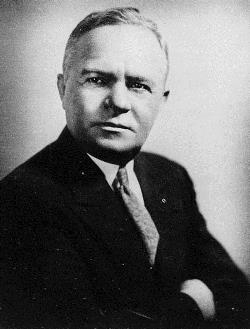 GEORGE J. HEUER, MD was a pioneer in neurosurgery at The Johns Hopkins Hospital in the early 20th century; he trained under Harvey Cushing and acted as a mentor to Walter Dandy. In his early career, Heuer focused on research and clinical work in the field of neurosurgery and temporarily led the neurosurgery section at Johns Hopkins. One of his most important contributions to neurosurgery was the modern frontotemporal craniotomy. This elegant craniotomy, which initially was used to approach chiasmal tumors, developed into the modern frontosphenotemporal craniotomy, which neurosurgeons use to approach numerous tumors as well as most aneurysms. Although Dandy is frequently credited with inventing this operation, his article detailing the new approach clearly attributes its origin to Heuer, who was serving in World War I when the new technique was presented.
GEORGE J. HEUER, MD was a pioneer in neurosurgery at The Johns Hopkins Hospital in the early 20th century; he trained under Harvey Cushing and acted as a mentor to Walter Dandy. In his early career, Heuer focused on research and clinical work in the field of neurosurgery and temporarily led the neurosurgery section at Johns Hopkins. One of his most important contributions to neurosurgery was the modern frontotemporal craniotomy. This elegant craniotomy, which initially was used to approach chiasmal tumors, developed into the modern frontosphenotemporal craniotomy, which neurosurgeons use to approach numerous tumors as well as most aneurysms. Although Dandy is frequently credited with inventing this operation, his article detailing the new approach clearly attributes its origin to Heuer, who was serving in World War I when the new technique was presented.
Although he had hoped to lead the neurosurgical section at Johns Hopkins permanently, he returned from military service to find that Dandy had been appointed to this position. Heuer subsequently advanced to a distinguished career in general surgery as the chairman of surgery at two institutions, and was known for his contributions to surgical education. Throughout his academic years, Heuer continued to operate on the nervous system and to perform spinal cord and peripheral nerve surgery. He played an important role along with Cushing and Dandy in the creation of neurosurgery as a specialty, but he is rarely given credit for his accomplishment.